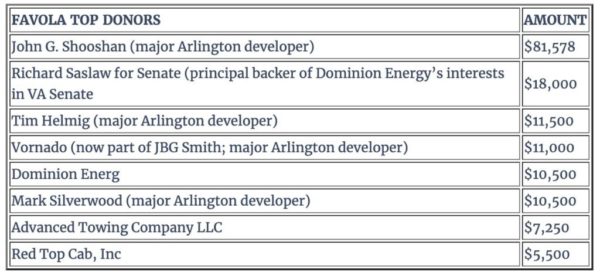 Peter’s Take is a weekly opinion column. The views and opinions expressed in this column are those of the author and do not necessarily reflect the views of ARLnow.com.
Peter’s Take is a weekly opinion column. The views and opinions expressed in this column are those of the author and do not necessarily reflect the views of ARLnow.com.
In his column last week, Mark Kelly discussed the recent unfortunate Supreme Court decision (5-4) concluding that federal courts could not provide relief from partisan gerrymandering.
In her persuasive dissent in that case, Justice Kagan concluded:
“In the face of grievous harm to democratic governance and flagrant infringements on individuals’ rights — in the face of escalating partisan manipulation whose compatibility with this nation’s values and law no one defends — the majority declines to provide any remedy.”
Despite this Supreme Court decision, Virginia is on its way to less partisan redistricting
Like many other states, Virginia currently has a partisan redistricting system.
For at least twenty years–up until early this year, Republican leaders in the Virginia House of Delegates fought non-partisan redistricting. They wanted to retain their control and saw partisan redistricting as the best way to do it.
Many Democrats believed they would do better with non-partisan redistricting. But that did not stop some Democratic legislative leaders, like 28-year incumbent Democratic Senator “Dominion Dick” Saslaw, from spearheading the disastrous 2011 legislative deal under which Virginia Senate Democratic leaders gave Virginia House Republican leaders free reign to draw partisan Delegate lines while Virginia Senate Democratic leaders received free reign to draw partisan Senate lines.
Partisan redistricting has served us poorly. The reasons were explained convincingly by a group of 20 business leaders from Virginia, Maryland and DC in this January 2019 statement:
“The endemic dysfunction in our government stems from incentives in politics that promote ideological purity over pragmatic problem solving and cooperation. … We believe anti-gerrymandering measures are the logical starting point for reform, and they are urgently needed in both Maryland and Virginia. A system in which politicians pick their voters, rather than the other way around, is inherently wrong and dysfunctional. Partisan gerrymandering is a protection racket for incumbent politicians….”
Sweeping gains by Democrats in the 2017 Virginia House of Delegates elections, combined with the prospect that Republicans might lose control of one or both legislative houses in the 2019 general election, finally led the Virginia Republican House leadership to support a form of non-partisan redistricting.
With strong bi-partisan support, Virginia enacted a 2019 law that will lead to a less partisan redistricting system.





